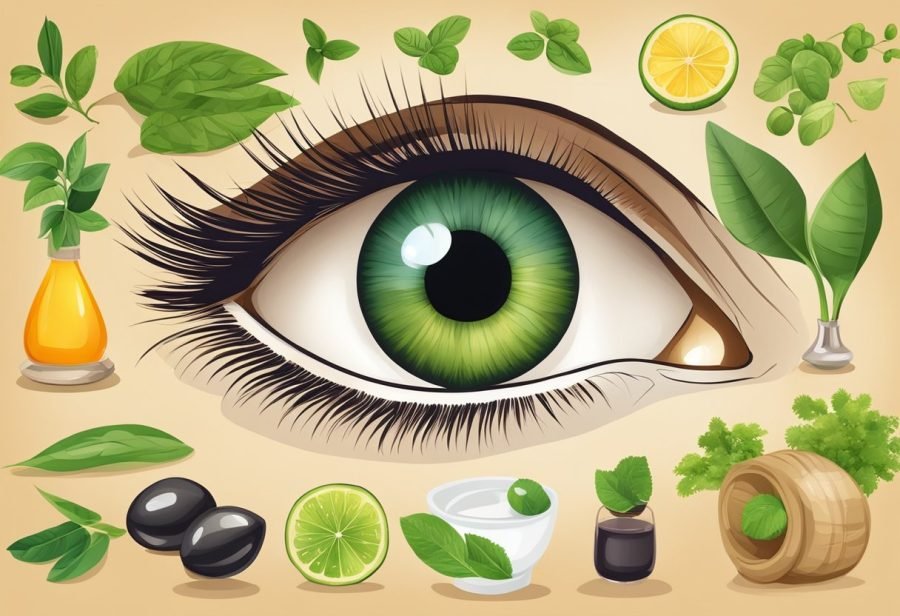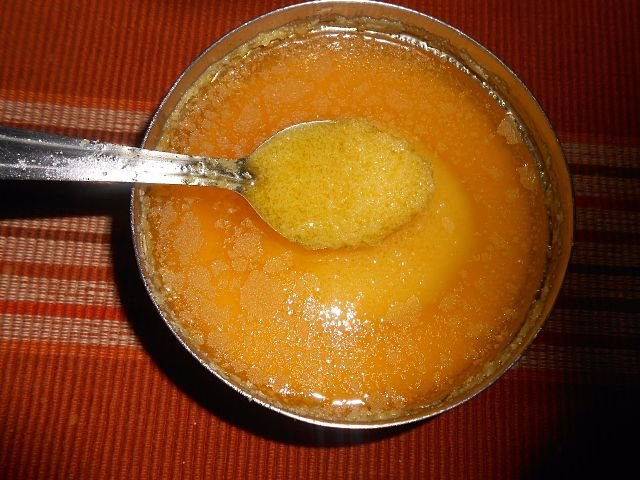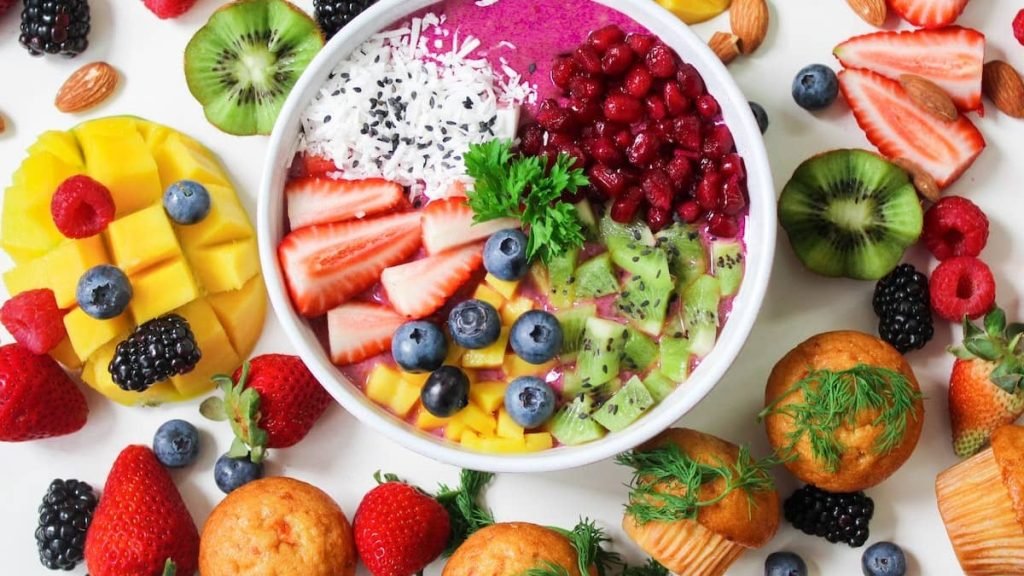13 Indian Home Remedies for Dry Eyes: Natural Solutions for Soothing Discomfort

Dry eyes can be a frustrating and uncomfortable condition that affects many people, especially those who spend a lot of time in front of screens or in dry environments.
While there are many over-the-counter and prescription eye drops available, some people prefer to use natural remedies to alleviate their symptoms.
As an Indian, I grew up with many traditional home remedies for various ailments, including dry eyes.
In this article, I will share some of the most effective Indian home remedies for dry eyes that are still used today by many Indians and Ayurvedic practitioners across the world.
☝️ Throughout the article you will find links to research papers and scientific articles from well-established and authoritative websites (all links open in a new window). I encourage to follow the resources we provide for further study.
What is Dry Eyes?
As someone who has suffered from dry eyes for years, I know firsthand how uncomfortable and frustrating this condition can be. But what exactly is dry eyes?
Dry eyes occur when your eyes don’t produce enough tears or when the tears evaporate too quickly. [1]
Tears are essential for keeping your eyes lubricated and healthy, and they contain a mixture of water, oils, mucus, and antibodies that help protect your eyes from infection. [2]
There are two (main) types of dry eyes: evaporative and aqueous deficient. [3]
- Evaporative dry eyes occur when the oil glands in your eyelids don’t produce enough oil, which causes your tears to evaporate too quickly.
- Aqueous deficient dry eyes occur when your eyes don’t produce enough tears.
Symptoms of dry eyes include redness, itching, burning, sensitivity to light, blurred vision, and a feeling of something in your eye. If left untreated, dry eyes can lead to corneal damage and vision loss. [4]
What Causes Dry Eyes?

There are many factors that can contribute to dry eyes, including medical conditions, allergies, environmental factors, aging, and even Lasik surgery. [4]
The two main causes are:
- Decreased Tear Production: Also known as aqueous deficient dry eye, this occurs when your eyes don’t produce enough tears. Some autoimmune conditions can cause inflammation in your lacrimal gland (in the upper, outer corner of each eye) and prevent it from producing enough aqueous tears. [1]
- Increased Tear Evaporation: Also known as evaporative dry eye, this happens when your tears evaporate too quickly. The most common cause is meibomian gland dysfunction, which means the glands in your eyelids that produce the outer, oily layer of your tear film don’t work properly. [1]
Other causes include:
- Medical conditions such as Sjogren’s syndrome, rheumatoid arthritis, and diabetes can all cause dry eyes. These conditions affect the body’s ability to either produce less tears or can cause tears to evaporate too quickly. [1]
- Allergies can also play a role in dry eyes. Seasonal allergies or allergies to certain substances can cause inflammation in the eyes, leading to dryness and discomfort. [5]
- Environmental factors such as dry air, wind, and smoke can also contribute to dry eyes.
- Spending time in air-conditioned or heated environments can also dry out the eyes.
- Aging is another factor that can cause dry eyes. As we age, our bodies produce fewer tears, and the quality of those tears can also decrease. [6]
- Finally, Lasik surgery can also cause dry eyes as it can damage the nerves that control tear production. While most people’s tear production returns to normal after a few months, some people may experience chronic dryness. [7]
What are the Symptoms of Dry Eyes?

Before we dive into Indian home remedies for dry eyes, let’s first talk about how to recognize dry eyes.
Dry eyes can present themselves in a number of ways, but some of the most common symptoms include:
- Redness
- Irritation
- Blurred vision
- Burning sensation
- Light sensitivity
If you experience any of these symptoms, especially on a regular basis, it’s important to see an eye doctor. They can help diagnose the issue and recommend the best course of treatment.
It’s also worth noting that dry eyes can be caused by a number of factors, including age, certain medications, and underlying health conditions. So if you’re experiencing symptoms, it’s important to talk to your doctor to rule out any underlying issues.
In the next section, we’ll discuss some Indian home remedies for dry eyes that can help alleviate symptoms and improve overall eye health.
Different Types of Dry Eyes

There are several types of dry eyes, and each has its own unique characteristics. Here are some of the most common types:
- Aqueous-deficient dry eye: This type of dry eye occurs when the lacrimal glands in the eye don’t produce enough tears to keep the eye moist.
- Evaporative dry eye: This type of dry eye occurs when the tears evaporate too quickly from the surface of the eye, leaving it dry and irritated.
- Mixed dry eye: This type of dry eye is a combination of both aqueous-deficient and evaporative dry eye.
- Contact lens-induced dry eye: This type of dry eye occurs when contact lenses absorb the tears from the eye, leaving it dry and irritated.
- Drug-induced dry eye: Certain medications can cause dry eye as a side effect.
- Environmental dry eye: This type of dry eye is caused by environmental factors such as wind, smoke, and dry air.
It’s important to identify the type of dry eye you have in order to determine the best course of treatment. If you’re unsure which type of dry eye you have, it’s best to consult with an eye doctor.
Overall, dry eyes can be a frustrating and uncomfortable condition, but with the right treatment, it can be managed effectively.
Indian Home Remedies for Dry Eyes

In India, there are several home remedies that have been used for generations to treat dry eyes. Here are a few that I have found to be effective:
Dry eyes are a common problem that can cause irritation, redness, and pain in the eyes. There are some Indian remedies that can help with dry eyes by moisturizing, cooling, and nourishing the eyes.
Here are some of them:
Ghrita (Ghee)

Ghee is clarified butter that has moisturizing properties. You can massage your eyes with ghee or put a drop of lukewarm ghee in each eye to soothe the dryness.
Here’s a video showing how to make Ghee at home. If you are bored of the procedure, you can buy ready-made ghee here.
Triphala Powder
Triphala is a blend of three fruits that has antioxidant and anti-inflammatory effects.
You can soak Triphala powder in water overnight and use the water as an eye wash in the morning to cleanse and refresh the eyes.
You can get Triphala powder from Amazon.
Pure Castor Oil
Castor oil is a natural lubricant that can reduce the evaporation of tears and improve the quality of tears. You can apply a drop of pure castor oil in each eye before bedtime to prevent dryness.
The best Organic, Cold Presses castor oil I could find is this one from Sky Organics.
Cucumber Slices
One of the easiest methods to treat dry eyes at home is placing cucumber slices over your eyes.
Cucumber slices are a simple and effective way to cool and hydrate the eyes. Just place chilled cucumber slices over your closed eyes for 10 to 15 minutes to reduce inflammation and redness.
Teabags
Teabags, especially green tea or chamomile tea, can help with dry eyes by providing antioxidants and anti-inflammatory agents.
You can steep the teabags in hot water, let them cool down, and place them over your closed eyes for 10 to 15 minutes to soothe the irritation.
Rose Water
Rose water is a natural toner that can balance the pH of the eyes and reduce the risk of infection.
You can soak cotton pads in rose water and place them over your closed eyes for 10 to 15 minutes to relax and moisturize the eyes.
Here’s how to make rose water at home.
If you are not to font of the procedure, you can buy ready-made rose water from Amazon.
Nasal Oil (sesame oil)
Nasal oil, especially sesame oil, can help with dry eyes by removing the micro blockages of the channels above the neck area.
You can put 3 to 4 drops of sesame oil in each nostril every morning to improve the circulation and lubrication of the eyes.
If you are looking for a quick Nasal sesame oil suggestion, you can get this NATUREPRO Sesame Oil Nasal Spray 3 Pack from Amazon. Great reviews and all-natural.
Netra Tarpana Eye Drops
Although this method is somewhat difficult to be performed alone in home, it is still one of the most widely used dry eyes treatment by Ayurveda practisioners worldwide.
Netra Tarpana is an ayurvedic eye drop that contains herbal ingredients like ghee, honey, milk, licorice, etc.
It can nourish and rejuvenate the eyes and prevent dryness.
You can use Netra Tarpana eye drops as per the instructions on the label or as advised by your ayurvedic doctor.
Amla (Indian Gooseberry)

Amla is a rich source of vitamin C and antioxidants that can boost the immune system and protect the eyes from damage.
You can eat fresh or dried amla or drink amla juice daily to improve your eye health.
Warm Compress
Another easy remedy for dry eyes. Warm compress can help with dry eyes by increasing the blood flow and loosening the oil glands around the eyes.
You can apply a warm compress over your closed eyes for 10 to 15 minutes twice a day to relieve the discomfort.
Just put a towel in a bowl and pour hot water over it. Then put the towel on your eyes. As simple as that.
Chandan (Sandalwood paste)
Chandan is a cooling and soothing agent that can reduce the heat and inflammation in the eyes. You can make a thick paste of white sandalwood powder and water and apply it over your closed eyes for 30 minutes to calm and refresh the eyes.
You can buy sandalwood powder here and you can watch this video on YouTube on how to make the sandalwood paste.
Draksha
Draksha is dried grapes or raisins that can provide hydration and nourishment to the eyes. You can soak Draksha in water overnight and eat them in the morning or drink their water to improve your eye health.
Gotu Kola Powder
Gotu Kola is an herb that has anti-inflammatory and healing properties. It can improve the blood circulation and oxygen supply to the eyes and prevent dryness.
You can mix Gotu Kola powder with water or honey and consume it daily or apply it as an eye mask for 15 minutes to enhance your eye health.
You can buy Gotu Kola powder here.
These home remedies for dry eyes are simple, natural, and effective. Give them a try and see if they work for you. However, if your symptoms persist or worsen, be sure to consult with a healthcare professional.
Dietary Suggestions for Dry Eyes
While there are many treatments available, some of the most effective remedies can be found right in your own kitchen. Here are some dietary suggestions for dry eyes that I have found to be helpful:
What to Eat to Eat To Prevent Dry Eyes?

Omega-3 Fatty Acids
Omega-3 fatty acids are essential for eye health and can help prevent dry eyes.
Foods such as fatty fish (salmon, tuna, sardines), flaxseed oil, chia seeds, and walnuts are all excellent sources of omega-3s. If you’re not a fan of fish, you can also take omega-3 supplements.
Vitamin D
Vitamin D plays an important role in overall eye health and can help prevent dry eyes. Foods such as egg yolks, fatty fish, and fortified milk are all good sources of vitamin D. You can also get vitamin D from sunlight, but be sure to wear sunglasses to protect your eyes.
Vitamin A
Vitamin A is important for maintaining healthy eyes and can help prevent dry eyes. Foods such as carrots, sweet potatoes, spinach, and kale are all good sources of vitamin A.
Hydration
Staying hydrated is essential for preventing dry eyes. Be sure to drink plenty of water throughout the day and avoid alcohol and caffeine, which can dehydrate you.
Other Vitamins and Nutrients
Other vitamins and nutrients that are important for eye health include vitamin C, vitamin E, zinc, and selenium. Foods such as citrus fruits, nuts, seeds, and whole grains are all good sources of these nutrients.
☝️ Avoiding certain foods can also help prevent dry eyes. Foods that are high in sugar, refined carbohydrates, and saturated fats can all contribute to dry eyes. Instead, focus on eating a balanced diet that includes plenty of fruits, vegetables, whole grains, and lean protein.
Preventing Dry Eyes
As someone who has struggled with dry eyes, I’ve learned a few things about preventing this uncomfortable condition. Here are some tips that have worked for me:
- Use a humidifier: Dry air can be a major cause of dry eyes, especially in the winter months. Using a humidifier can help add moisture to the air and prevent your eyes from drying out.
- Get enough sleep: Adequate sleep is important for overall health, but it’s also crucial for preventing dry eyes. When you don’t get enough sleep, your eyes can become tired and dry, so make sure you’re getting at least 7-8 hours of sleep each night.
- Blink frequently: Blinking is something that most of us do without even thinking about it, but it’s actually an important way to keep our eyes moisturized. When you blink, your eyelids spread tears across your eyes, which helps prevent dryness. [8]
- Wear sunglasses: Protecting your eyes from the sun’s harmful UV rays is important for preventing a variety of eye problems, including dry eyes. Make sure you wear sunglasses that block at least 99% of UV radiation.
- Rest your eyes: If you spend a lot of time staring at a computer screen or other digital devices, it’s important to take breaks and rest your eyes. Try the 20-20-20 rule: every 20 minutes, look away from your screen and focus on something at least 20 feet away for 20 seconds. [9]
- Consider environmental factors: If you live in a dry or windy climate, or if you spend a lot of time in air-conditioned or heated environments, you may be more prone to dry eyes. Try to limit your exposure to these conditions as much as possible.
By following these tips, you can help prevent dry eyes and keep your eyes feeling healthy and comfortable.
Medical Treatment for Dry Eyes
When it comes to treating dry eyes, there are several medical options available. Your healthcare provider may recommend one or more of the following treatments:
Medications
Certain medications may help improve the quality and quantity of tears in your eyes. These include:
- Eye drops that reduce inflammation
- Eye drops that increase tear production
- Antibiotics to treat underlying infections
Inflammation
Inflammation can be a contributing factor to dry eyes. Your healthcare provider may recommend anti-inflammatory medications to help reduce inflammation in your eyes.
Eye Drops and Ointments
Artificial tears, eye drops, and ointments can help lubricate your eyes and relieve dryness. There are several types of eye drops and ointments available, so it’s important to speak with your healthcare provider to determine which is best for you.
Laser Eye Surgery
In some cases, laser eye surgery may be an option to treat dry eyes. This procedure involves blocking the tear ducts to prevent tears from draining too quickly.
Frequently Asked Questions
Final Take
As you can see, there are a variety of Indian home remedies that can help alleviate dry eyes. By incorporating some of these remedies into your daily routine, you can promote healthy eyes and clear vision without the use of potentialy harmful, big-pharma products.
Again, one of the most effective remedies is the use of rose water.
This natural eye drop solution can help soothe dry, irritated eyes and improve overall eye health.
Another good option is to consume foods rich in omega-3 fatty acids, such as flaxseeds, walnuts, and fatty fish, which can help reduce inflammation and promote eye health.
In addition, practicing good eye hygiene, such as washing your face and eyes regularly, can help prevent dry eyes. You can also use a warm compress to help soothe dry eyes and reduce inflammation.
It’s important to note that while these home remedies can be effective, they should not replace professional medical advice. If you are experiencing severe or chronic dry eyes, it’s important to consult with an eye doctor to determine the underlying cause and appropriate treatment plan.
Overall, by incorporating these natural remedies into your daily routine and practicing good eye hygiene, you can promote healthy eyes and clear vision without the use of nonprescription products.
Read Next
